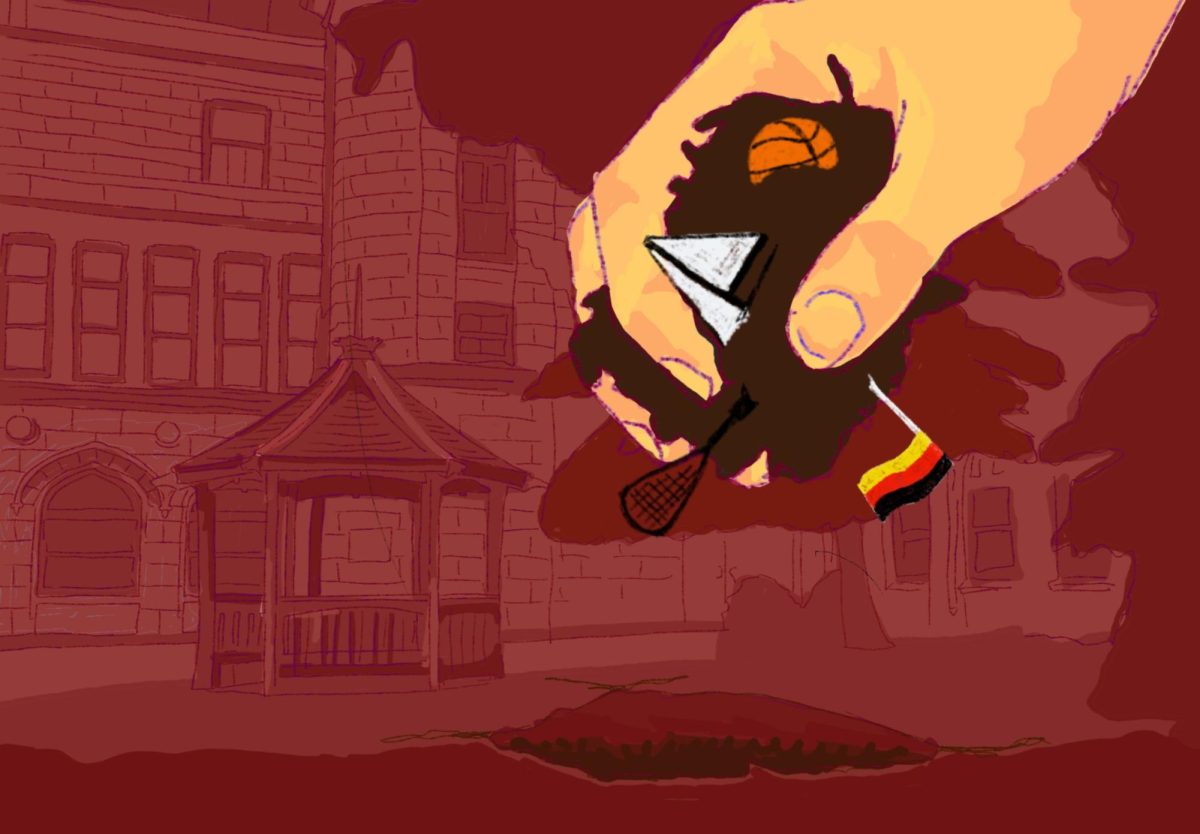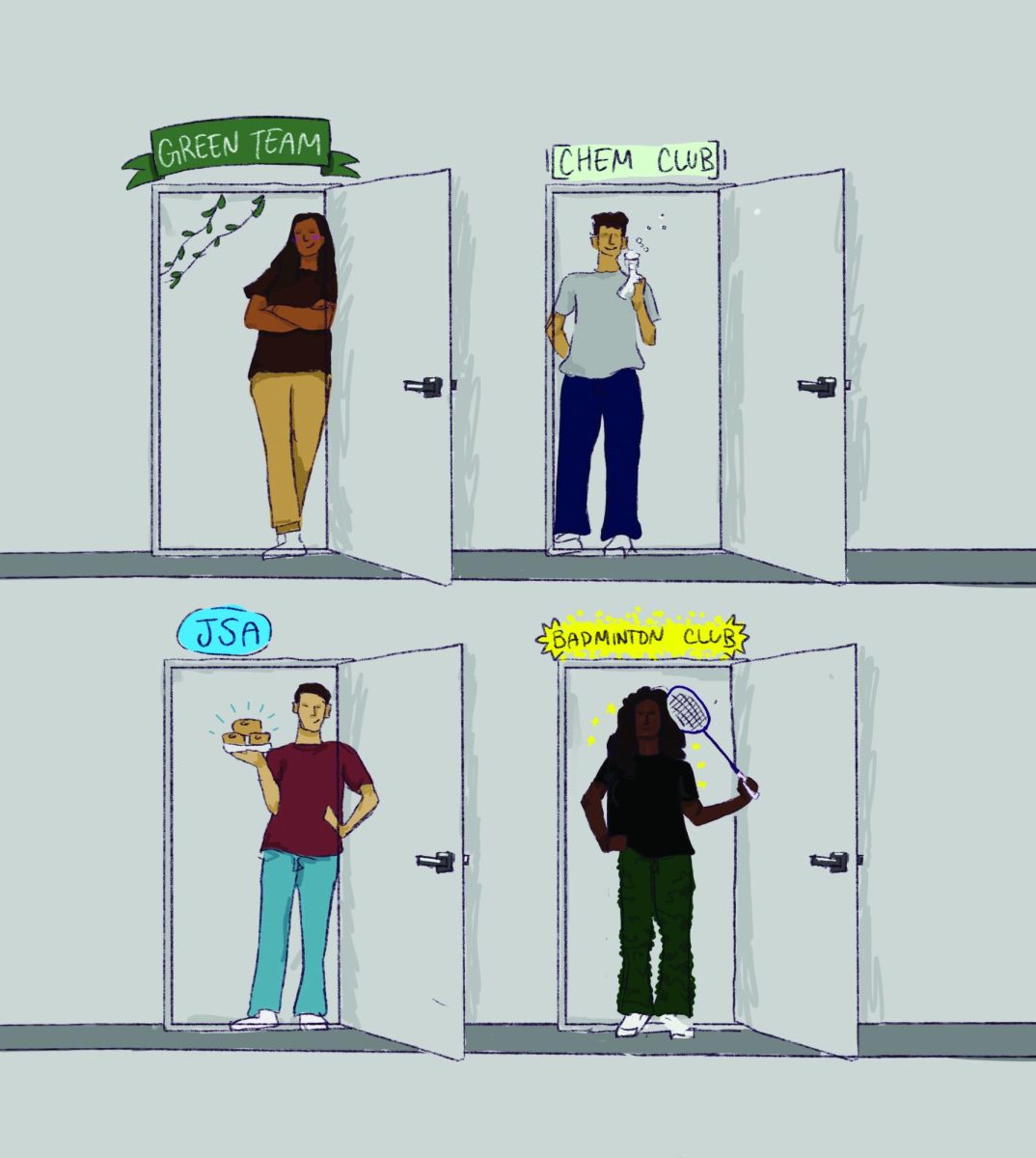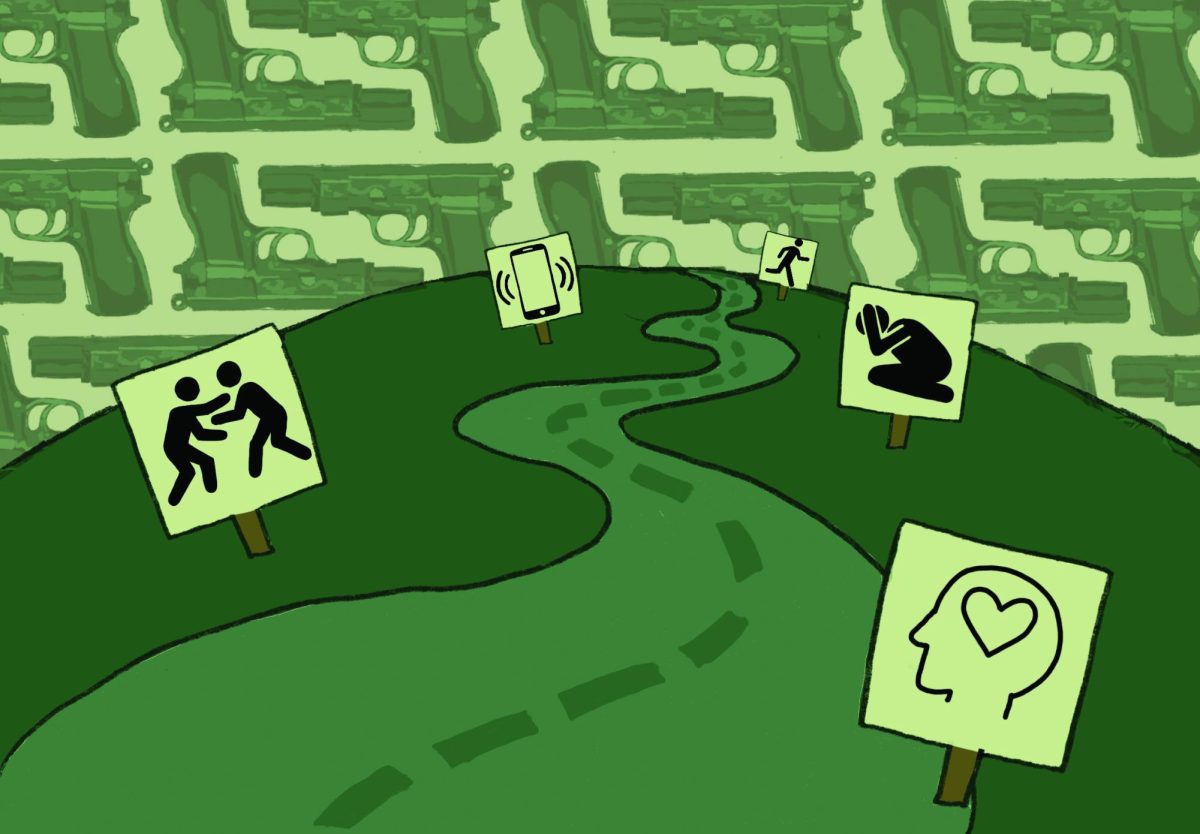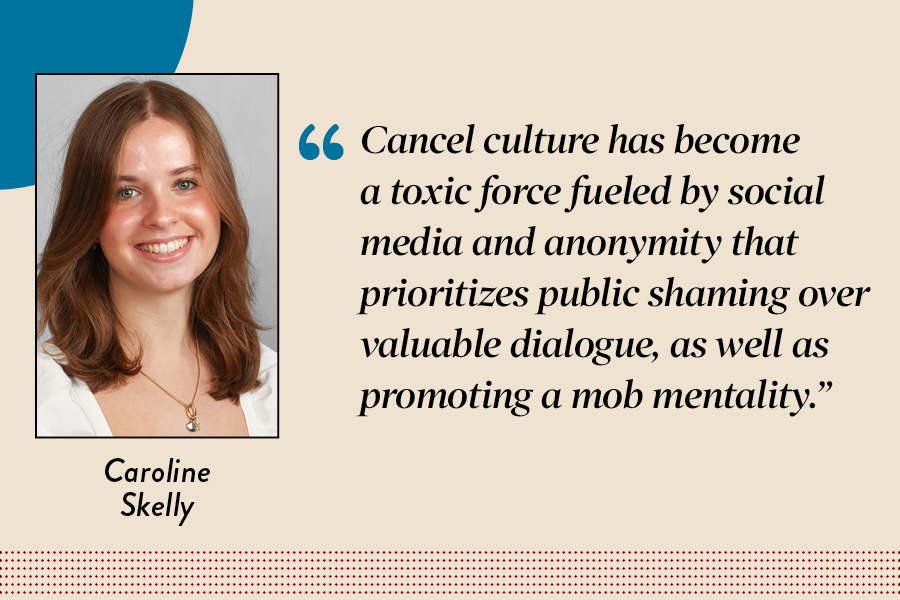On a typical weekday afternoon, Kenwood Mall is filled with middle school athletes passing balls back and forth, running around warming up for practice, or lining up for an away game. But on the morning of May 15, the vibe of Kenwood Mall was much less jovial, filled with angry, shouting students and parents. They were protesting recent budget cuts that would reduce some middle school teams, establish cut policies on seventh- and eighth-grade sports, and eliminate squash and sailing. The budget cuts will also phase out Lab’s German language program by 2028 and cut nine other staff positions.
Cutting distinctive qualities undermines Lab’s values — and its value — because these are the very programs that make Lab special and different, fostering our vibrant community. While these programs might not seem significant to everyone, they hold value to those involved and allow everyone to pursue a passion.
They are what makes Lab, Lab.
Lab is a place where the mission is to “ignite and nurture an enduring spirit of scholarship, curiosity, creativity, and confidence.” But adopting a tryout policy in middle school athletics is the antithesis of Lab’s education values. Middle schoolers — who have been excitedly anticipating school sports in the fall of sixth grade or to continue these sports in seventh and eighth grade — will now be thrown into a competitive environment, where some students will be made to feel less than. Younger students will also not be able to learn the value of teamwork, being gracious winners and losers, supporting teammates whose athletic abilities might not be at that same level and pushing through challenges. Athletics at all levels, especially before high school, foster and nurture enduring spirits and confidence, help students learn experientially and test the waters of different activities. Sports programs like sailing and squash present a respite from the intense academic workload and allow student-athletes to receive rewards for their work, while as a community we can celebrate their achievements.
Lab, as a school, prides itself on its academic rigor and range of courses. Eliminating one of four languages offered beginning in lower school undermines this deep-rooted value. When academic and sports programs are taken away from students, there is an implication that these programs aren’t as valuable as others and that the participants aren’t as valued as others.
Questions of what programs are in the pipeline to be cut are in the air. When cutting academic programs, how far becomes too far?
By cutting these unique Lab programs, we become no different than other schools. By lowering the value of Lab in contrast to other Chicago schools, how does Lab appear as an appealing place to students and families? What draws the next generation of learners to come to Lab when it feels more like every other school in the city?
These cuts are already having ripple effects. On May 17, librarians announced a hiatus on the Zena Sutherland Award program due to the staffing cuts in the libraries across the schools. With these cuts, we should expect more changes.
These cuts are irreversible, but going forward as a community, we hope that students will still have programs and opportunities to find their passions and explore them, including new club sports. Any cuts should be directed to other parts of the school, not academic programs. Future budget discussion and decisions should occur with greater transparency, because to the Lab community, these cuts don’t line up with our values.




























































George Karcazes, Lab ‘53 • May 30, 2024 at 12:15 pm
BAS DECISIONS SHOULD ALWAYS BE REVERSIBLE. The Lab School, College and Law School I attended in the 50’s valued dialogue, transparency and accountability. Ignoring valid, well reasoned dissent violates the Chicago Principles. There are good teaching moments here: it is always worth the effort to do the right thing; being right is often better than winning; Lab administrators should honor Lab’s culture and the Chicago Principles and should walk the walk rather than just talk the talk.